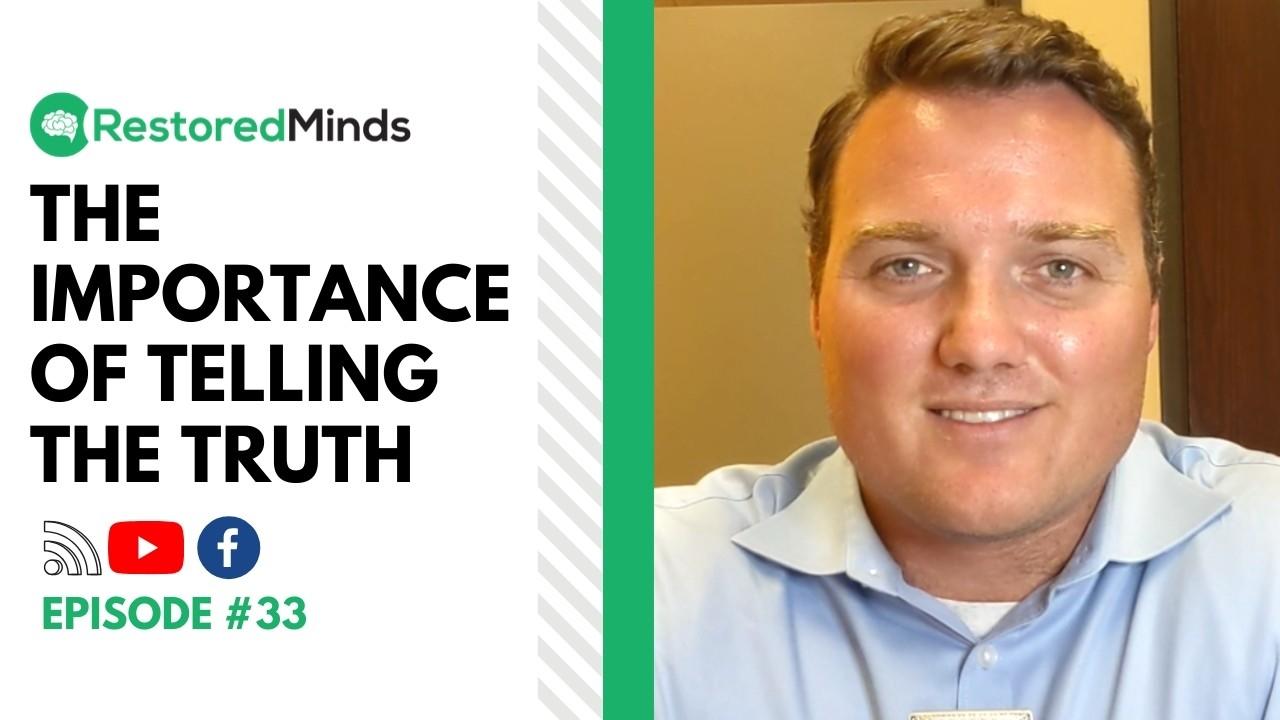The Importance of Telling The Truth
May 20, 2020
Why Telling The Truth Matters
In this week's episode, our host Matt brought to light an idea that may seem simple but is often ignored: telling the truth. Living in an era where integrity often takes a backseat to popularity and clicks, it's vital to revisit why honesty should be our compass.
Truthfulness plays a pivotal role in various forms of recovery—be it mental health, societal norms, or personal behavior. It sets the foundation for genuine relationships, real progress, and authentic living. Truth is not just about factual accuracy but an alignment with our deeper principles and values.
The Modern Crisis of Integrity
Matt aptly describes our times as experiencing an "integrity imbalance." How often have you promised yourself to exercise, eat healthily, or stick to a new routine, only to break that promise? That's a small but significant breach of self-integrity.
On a larger scale, misinformation fuels distrust, leading to public confusion and anxiety. The media often prioritizes sensationalism over truth, skewing perceptions to garner more views and clicks. This creates an environment where deception becomes the norm, further eroding our collective integrity.
Lessons from Culture and Philosophy
Drawing inspiration from cultural references and philosophical discourse, Matt shares a compelling quote from the movie Kingdom of Heaven, "Tell the truth, even if it leads to your death." Initially, such an extreme vow might seem foolish. However, it underscores the indispensable value of truth.
Authors like Don Miguel Ruiz in The Four Agreements advocate for being impeccable with your word, while Dr. Jordan Peterson in 12 Rules for Life promotes the idea of telling the truth, or at least not lying. Both stress the crucial role honesty plays in living a fulfilling and authentic life.
Why Do We Lie?
There's a psychological angle to every lie, and understanding this helps us tackle the issue more effectively. One reason people lie is to control the narrative; they anticipate negative outcomes if the truth were known. Thus, they manipulate the facts to steer the situation in their favor.
Another reason is the misconception that the other person cannot handle the truth. This creates a false sense of superiority and further distances authentic connections. Yet, these lies complicate lives, leading to more complicated webs of deceit and greater emotional stress.
The Problems with Lying
Firstly, lying creates the mental burden of maintaining two realities – you have to remember both the truth and the fabricated story, along with whom you told each version. This is mentally exhausting and prone to eventual collapse.
Secondly, lying fosters manipulation. When people realize they’ve been deceived, it leads to mistrust and discord. Relationships crumble under the weight of falsehoods, whether they are personal, professional, or societal.
The Importance of Truth
The pursuit of truth is a fundamental human endeavor. Philosophers like Plato, Nietzsche, and Emmanuel Kant have spent lifetimes exploring its dimensions. Truth allows us to see the world as it truly exists, which is crucial for making well-informed decisions.
Operating under illusions or half-truths leads to misguided efforts and fruitless endeavors. Practically speaking, truth provides a stable foundation upon which to build our lives, relationships, and societies.
Application in Mental Health Recovery
Honesty is indispensable in mental health recovery. Self-integrity lays the groundwork for authentic healing. If a person isn't truthful, their journey toward recovery is hindered. In behavioral treatments, for instance, where the goal is to eliminate compulsions or change harmful habits, self-deception can derail progress.
As Matt emphasizes, beginning with the truth is crucial. Whether tackling anxiety, depression, or behavior modification, honesty accelerates recovery and fosters resilience.
Conclusion
Telling the truth is more than just an ethical mandate—it’s a pragmatic necessity for a healthy life and society. As we continue to navigate complex times, embracing and practicing honesty can lead to meaningful change.


